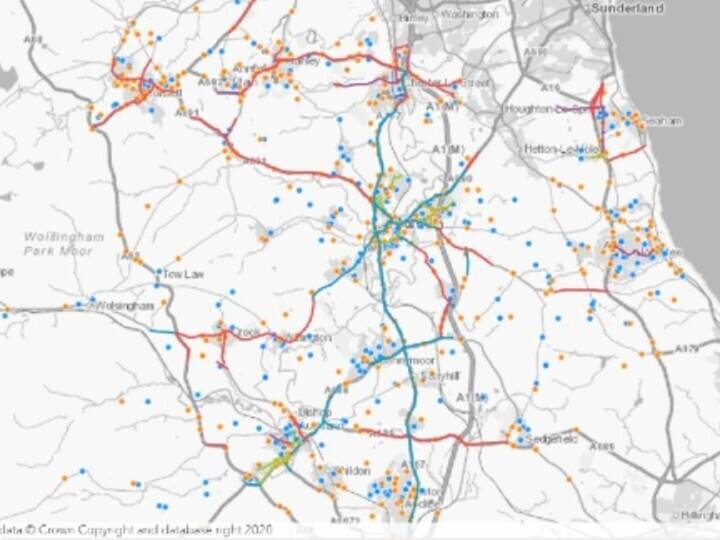A House in Multiple Occupation (HMO) throws up many challenges for any organisation or company that’s involved in its administration, billing, or maintenance. This includes local authorities that want to support and engage with landlords in the private sector.
When the Housing Act (2004) came into force, it introduced a mandatory licensing system for larger HMOs – buildings providing homes to 5 or more occupants. The Act lets local authorities introduce additional licensing, as well as selective licensing or ‘under other legislative provisions’ licensing if necessary, to ensure those buildings are fit for purpose and, over time, to help collaborate and improve general living standards for residents. The act also covers other HMOs and privately rented properties.
Growth in rental properties
Hackney Council has seen huge growth in the private rented sector, which now accounts for around 30% of all properties. It’s an area that’s densely populated with many HMO of various sizes. However, with such a demand for housing, and general increases in rental costs, some residents find that their only choice is a rental property that’s in less-than-ideal condition or disrepair.
Research commissioned by the council showed that around 11% of private renters in the Hackney area were experiencing serious hazards such as leaking roofs, dangerous, boilers, exposed wiring and vermin infestations. In three specific wards, the research showed that these instances increased to affect around 20% of tenants.
Hackney is committed to improving the situation. The Housing Act (2004) legislation impacts 16% of the local authority’s HMOs and the Borough Council wanted to engage with those landlords proactively, to ‘create a more professional rented sector’ and – on behalf of residents – to target any rogue landlords who were failing to provide a good, safe home for their tenants.
What is an HMO
A residential building is classed as an HMO if both of the following apply:
- at least 3 tenants live there, forming more than 1 household
- a toilet, bathroom or kitchen facilities is shared with other tenants.
- at least 5 tenants live there, forming more than 1 household
- a toilet, bathroom or kitchen facilities is shared with other tenants.
- Council Tax accounts
- Electoral register
- antisocial behaviour
- housing benefit
- council tenancies
- current property licensing information.
It’s a large HMO if both of the following apply:
Working proactively to improve housing standards
Hackney wanted to predict which residential properties could be HMOs, using data already held on existing licenced HMOs. By identifying the characteristics of HMOs, the council could use machine learning techniques to identify other properties that exhibit similar traits. Additionally, whilst the council knew which properties were social housing, they didn’t always know which properties are privately rented or owner occupied.
Before undertaking the project, a Privacy Impact Assessment was completed to ensure that data protection and privacy standards were met and were continually reviewed.
The team identified a long list of data fields that they wanted to link to a property UPRN. This included council-held information such as:
All of these datasets could be linked through the UPRN. The process also highlighted that some systems could improve their use of the UPRN, which will be followed up separately.
Open data such as Energy Performance Certificates and Land Registry were also included. These datasets do not include a UPRN despite being about a single address, but GeoPlace provided a lookup to enable the council to easily incorporate them into their ever increasing ‘tenure intelligence’ dataset.
Additional intelligence included data on tenancy deposits. However, the dataset didn’t contain the UPRN and needed to be geocoded. This process meant that many properties were not matched due to insufficient address information, and it was very clear that inclusion of a UPRN from the outset would be incredibly useful and would reduce data loss.
So far, the council has linked over 240 data fields to its residential property gazetteer. Being integrated with the council’s business intelligence set up, updates are available on a weekly basis.
Once a first draft of the linked ‘tenure intelligence’ dataset was ready, the council was able to start testing and refine its predictive model. Part of the data preparation also included an algorithm to assign a tenure type, which would help to identify which houses are privately rented or owner occupied.
As a result of the work, the team now has a list of predictions with varying probabilities, which are made available to the Private Sector Housing team through a dashboard. Also included are key data fields which explain why a prediction might have been made and will allow the enforcement officers to make a decision about whether to investigate the property.
Results
By acquiring these insights with accuracy at an individual unit level, the council was able to create a unified view of the borough’s rental property market, enabling it to work efficiently and effectively with landlords and tenants to ensure HMOs are fit for purpose. A selective licensing scheme that would apply to all privately rented properties, not just HMOs, has now been rolled out in Brownswood, Cazenove and Stoke Newington to help ensure that renting regulations were respected.
The result is a robust way for Hackney Borough Council to address poor living conditions for tenants in the area – improving the overall health, wellbeing and quality of life of residents – and a means to crack down on rogue landlords proactively.
By introducing a more proactive licensing scheme, landlords will now be required to keep their homes in good condition and ensure high standards of management, or risk enforcement from the Council
Overall, the UPRN-enriched datasets have also been useful in enabling Hackney to improve its estate by linking in other information sources to support analytics.
As a next step, the council is now starting to test the HMO predictive model, as well as decide how to improve its tenure intelligence data going forwards, and how it might be useful for other projects. This work would have been extremely difficult if it wasn’t for the availability of the UPRN.
Anna Gibson, Data & Insight Analyst, ICT Services, London Borough of Hackney is responsible for the work. She emphasised that the project’s main focus was around improving living conditions for people:
“By introducing a more proactive licensing scheme, landlords have to keep their homes in good condition and ensure high standards of management, or risk enforcement from the council. The UPRN has been invaluable in bringing datasets together to understand property at a very granular level. Where the UPRN wasn’t available, development was hindered.”
Further information the consultation to expand property licensing in Hackney, from which this project was derived, is available at https://drive.google.com/file/d/1p-ZfTrn79oTdRaTtT0_3AXqtCS4jikIw/view.



